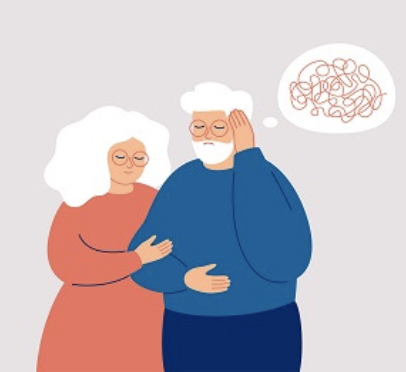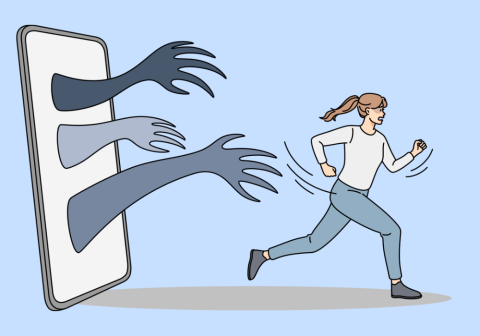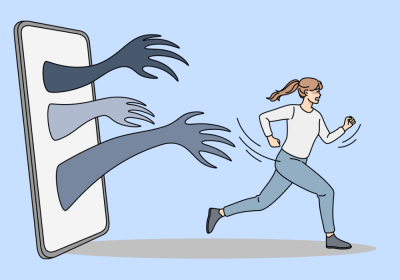People who have serious, chronic, or terminal illnesses are at increased risk for experiencing anxiety and depression.
After diagnosis, 40 percent of cancer patients report developing significant distress that can include serious worry, panic attacks, depression, and PTSD, or posttraumatic stress disorder. Also, people who have diabetes or rheumatoid arthritis are six times more likely to develop depression than people without these illnesses. Transplant patients, as well as chronic pain and respiratory disease patients and others with disorders that require a lifetime of coping report increased levels of depression and anxiety. The difficulty of coping with serious illness is also complicated by treatments that induce psychological symptoms such as mania, depression, insomnia, and anxiety attacks.
Caretakers are also at greatly increased risk for depression and anxiety. Well-intentioned medical doctors who may assume that their patients’ experiences with psychological impairment are a necessary side effect of treatment or the condition overlook opportunities for psychological intervention. While their doctors are focused on their physical well-being, many patients become highly concerned with their own mental well-being. Patients want to find as much joy and meaning as possible given their difficult circumstances. They realize from hard experience that just following the doctor’s orders or reading up on stress management does not automatically lead to feeling well.
Here are some typical symptoms that suggest it’s time to seek treatment.
For Patients
- Anticipatory anxiety attacks about treatment or future prognosis
- Avoiding necessary treatment because it provokes intolerable feelings of anxiety or sadness
- Repetitive nightmares or intrusive thoughts about diagnosis or treatment of your medical condition
- Inability to sleep due to distress about your condition
- Anxiety attacks about not properly following the treatment regimen
- Thoughts of suicide because you believe that your condition makes your life worthless or too painful to endure
- Inability to talk to others about how you feel about your condition
- Avoiding of socializing because of your condition
- Shame and self-blame about your condition
- Loss of pleasure in activities you once enjoyed
- Chronic irritability
For Caretakers
- Avoiding pleasurable or meaningful activities because you feel guilty about taking time off from caretaking
- Repetitive nightmares or intrusive thoughts about the patient, including the diagnosis, treatments, or future prognosis
- Inability to sleep
- Anxiety attacks about not properly following the medical regimen
- Inability to talk to others about your experience as a caretaker
- Anticipatory anxiety about future treatments for the patient
- Inability to enjoy activities you once found pleasurable
- Thoughts of suicide because you feel so overwhelmed, worthless, or inadequate
- Chronic irritability
Tips To Restore Mental Wellness
Find support groups for people who share the same condition or caretaking responsibilities. When you start talking about your experiences and feelings, you’ll discover that you are not alone. Many disorders have online blogs, support groups, and bulletin boards that do not require leaving your home.
Seek professional counseling or, if appropriate, pharmacotherapy. If you can’t travel to a therapist’s office, find one who can use videoconferencing. If you are a veteran, the Veterans Administration has a comprehensive telemedicine service that gives you ease of access.
Don’t assume experiencing terrible psychological side effects from treatment or diagnosis is inevitable. Medications can often be given to counteract the side effects of unpleasant treatments. Therapy can help you improve your coping skills.
Make your mental wellness a priority that gets as much attention and intervention as your physical condition. You are a whole person whose emotional and mental well-being is intertwined with your physical condition. They both require excellent care.
Learn more about anxiety and chronic pain, headaches, and other related illnesses, as well as how to help others and blog posts about health anxiety.
















